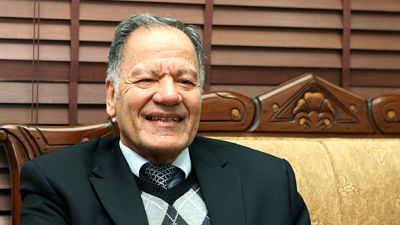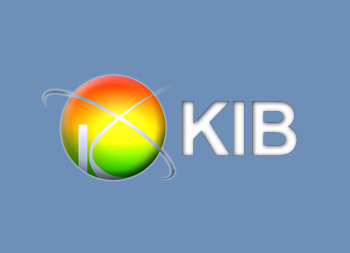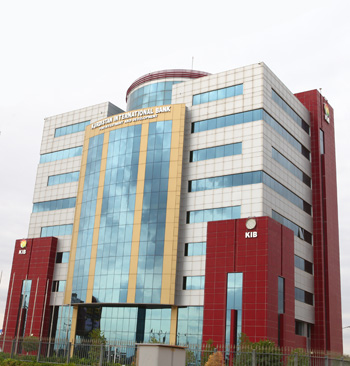Kurdistan International Bank: Islamic Banking in Iraq
Bustam Al-Janabi, Managing Director (CEO) of Kurdistan International Bank
Kurdistan International Bank provides comprenehsive banking services since 2005. It is an investment-oriented institution based on Islamic banking. Kurdistan International Bank has doubled its profits when compared to last year and the same is expected to happen in 2013, says Mr. Al-Janabi.
Interview with Bustam Al-Janabi, Managing Director (CEO) of Kurdistan International Bank

Let’s discuss the banking system in Kurdistan. Based on your deep understanding of what Iraq went through, could you give us an overview of the current banking system and compare it to what had existed in the past?
Since 2003 we have open economic policies within the whole of Iraq and the Kurdistan region. Banking plays a major role in economic development; it is the foundation for economic growth in many sectors whether financial, construction, agriculture, industry, housing etc. Down to 2004 there were very few private banks – they were non-existent in Kurdistan and in Iraq there were just a few. Now in recognition of their importance, the legal framework has been changed to enable them to flourish, expand and exercise their full potential.
Kurdistan International Bank was set up in this new environment and started operations in 2005. It is a pioneer. It is the biggest bank in the Kurdistan region and is one of the major banks, if not the second bank of Iraq as a whole. We expanded rapidly in terms of deposits and in all aspects of the financial sector: profitability, growth and capital. Last week we doubled our capital from 150 billion Iraqi dinars to 300 billion Iraqi dinars. The requirement from the Central Bank is 250 billion Iraqi dinars.
We expect to have more work and to participate in a lot of joint ventures in cooperation with international companies and banks. In fact, we expanded our correspondent relationship with a lot of international banks in Western Europe, the Gulf, America etc.
Kurdistan International Bank is hoping to diversify its products and services. Just recently we signed a new contract with MasterCard in order to offer new products and to diversify geographical locations, to be able to disperse throughout the country. We also have Visa cards, we imported over one hundred ATM machines and we have started installing them in malls, city centres and so on.
Our profits this year compared to those last year have almost doubled and we expect to grow in this way. Although we provide comprehensive banking services, we are investment oriented and based on Islamic banking. We do a lot of joint ventures, musharaka and murabahah and mudharabah. All the taxi cars you see have been imported by us from Japan. Replacing the old cars provides lots of employment opportunities for many people and this will have a good effect on the environment. It is an environmentally friendly project. We have also started to import buses.
So, to put the record straight, is Kurdistan International Bank an Islamic bank?
Yes, Kurdistan International Bank is purely an Islamic bank. Of course we do all comprehensive banking services including LG, LC and rapid money transfer through Western Union. And we are expanding this line and we also have other joint ventures.
Since 2003 a lot of restrictive legislation has been abolished or revised with the aim to liberalise the economy and the payment system, principally to adopt an up to date payment system that is fully automated in coordination with the Central Bank of Iraq. Now it is almost fully online.
A question about regulations on the market: what has been implemented in terms of Basel II Accords? Some banks in Lebanon are already compliant with Basel III.
You know we always observe compliance, firstly with the regularity instructions from the Central Bank of Iraq, the Registrar of Companies and also compliance with the Shariah Board. I think that the new Basel instructions emphasise the importance of capital – to increase and gear up the structure of Share-capital. Relying more or your own resources than on outside financing in order to get capital adequacy ratio is very important. So in this sense, we are fulfilling a major part of this amendment or agreement which is to have a sort of highly geared structure to increase capital instead of outsourcing or borrowing.
In all aspects we observe capital adequacy ratios; we have high or well above minimum ratios and we are trying to expand whenever the opportunity arises.
In terms of international partnerships, what has been done within the banking system? Is it possible to transfer money from the United States or from Europe?
Yes, of course. Since 2003 a lot of restrictive legislation has been abolished or revised with the aim to liberalise the economy and the payment system, principally to adopt an up to date payment system that is fully automated in coordination with the Central Bank of Iraq. Now it is almost fully online.  Our new banking system also provides this facility of online operations; you can get your reports and records updated daily. This will help to prepare periodical statements and accounting etc. Also we can have investment in terms of holdings and balances outside the country, for liquidity and transactions to settle our obligations, using Swift and rapid Money Transfer etc. as well as we observe Anti-Money Laundering Procedures and so on.
Our new banking system also provides this facility of online operations; you can get your reports and records updated daily. This will help to prepare periodical statements and accounting etc. Also we can have investment in terms of holdings and balances outside the country, for liquidity and transactions to settle our obligations, using Swift and rapid Money Transfer etc. as well as we observe Anti-Money Laundering Procedures and so on.
Now, one of the major challenges many banks are facing here in the Kurdistan Region is that people don’t use credit cards or loans, they use cash.
A lot of people don’t have financial or banking awareness. Sometimes they prefer to keep their money to themselves and do their transactions on a cash basis. Now you will see a trend of increased volume of bank deposits as people become acquainted with the new instruments and tools. Since we installed the visa accounts and ATM machines people have and continue to use them more and more during and outside of working hours. There is an increased awareness of the new ways of dealing with banks. I think in the future people will have an even greater awareness and will participate more actively in banking. Thus we will be able to attract deposits and channel them into projects to help finance operations for economic development.